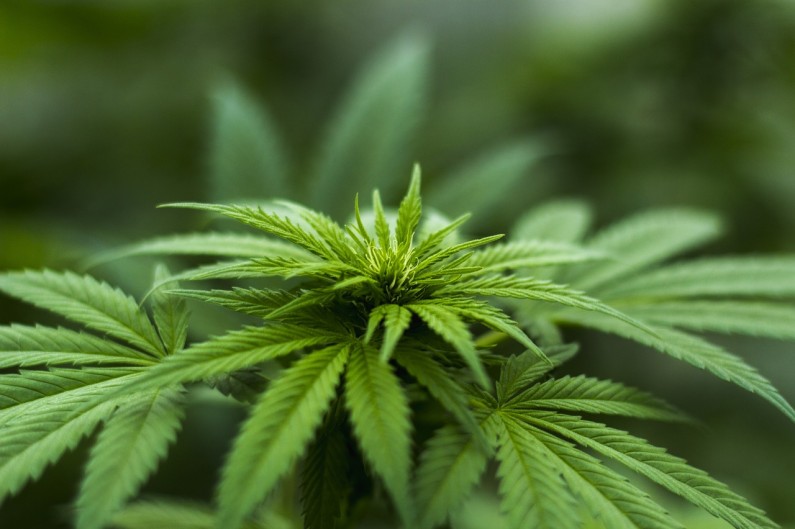
It seemed that Donald Trump had called off his war against marijuana in April when he struck a deal with Colorado Republican Senator Cory Gardner to support the states that have legalized cannabis. This was done in exchange for Gardner’s promise to stop blocking nominations to the Department of Justice. Nevertheless, the White House is ready to wage a “War on Weed.”
According to Dominic Holden with Buzzfeed, “the Trump administration has secretly amassed a committee of federal agencies to combat public support for marijuana and cast state legalization measures in a negative light while attempting to portray the drug as a national threat.” Trump is organizing 14 federal agencies and the DEA to aid in pushing his agenda against cannabis, as reported by Buzzfeed.
The collective group is reportedly called the Marijuana Policy Coordination Committee. A summary from a meeting in July between the White House and nine departments says all that is needed to know about their agenda:
The prevailing marijuana narrative in the U.S. is partial, one-sided, and inaccurate.” This is a statement from the July 27, 2018 meeting. A follow-up memo, which provided guidance for responses from federal agencies, White House officials told department officials, “Departments should provide… the most significant data demonstrating negative trends, with a statement describing the implications of such trends.”
[…]
“Staff believe that if the Trump administration is to turn the tide on increasing marijuana use there is an urgent need to message the facts about the negative impacts of marijuana use, production, and trafficking on national health, safety, and security, says the meeting summary.
It is not clear what Trump’s actual involvement is concerning this issue. In June, Trump said that he would most likely support a bill drafted by Gardner and Massachusetts Senator Elizabeth Warren that allows states, territories, and tribes to draft their own policies on marijuana. Coordinating with 14 federal agencies on the subject suggest that the initiative is coming from a high authority.
The Trump administration told Buzzfeed that their policy coordination process is a deliberative and internal process to draft the policies on multiple issues facing the American people, and they assured it was consistent with the president’s agenda.
Currently, recreational marijuana is legal in nine states and Washington D.C. North Dakota and Michigan will vote in November to decide to legalize cannabis.
Historically, the DEA is against marijuana. However, they are admitting that cannabis is a better option that opioids and that marijuana appears to reduce the use of opioids.
According to a new Federal Register filing that will be published, the DEA is moving more than quintuple the amount of marijuana that can be legally grown in the U.S. for research purposes. The DEA collected 1,000 pounds in 2018 and plans to confiscate more than 5,400 pounds next year.
The anti-drug agency is pushing to reduce the amount of certain opioids: hydrocodone, oxycodone, fentanyl, morphine, and others produced in the U.S.
Uttam Dhillon, the DEA Acting Administrator, stated in a press release that too many lives have been lost due to the opioid epidemic. Communities and families are suffering [from] tragic losses and consequences every day. “This significant drop in prescriptions by doctors and the DEA’s production quota adjustment will continue to reduce the number of drugs available for illicit diversion and abuse while ensuring that patients will continue to have access to proper medicine.”
U.S. Attorney General Jeff Sessions is a longtime opponent of legalizing cannabis. He stated that the opioid epidemic is the worst drug crisis in American history. He believes cutting the opioid production quotas by 10 percent next year will help continue progress and make it harder to divert the drugs for abusive purposes.
In 2019, the narcotics agency wants to have 2,450,000 grams of marijuana grown, which is significantly up from 443,680 grams authorized by the agency for 2018.
In addition to the increase in cannabis cultivation, the DEA is also allowing the production of 384,460 grams of tetrahydrocannabinols (THC) in 2019, which is the same amount cleared for 2018.
A farm maintained by the University of Mississippi has had a monopoly on the production of marijuana for research since 1968. Scientists have complained that is can be difficult to gain approvals to obtain cannabis from the farm and that the product is often low quality.
In response to the scientists, the DEA moved to end the monopoly and create a process for the National Institute on Drug Abuse (NIDA) to license other cultivators. Two dozen facilities have filed proposals to be licensed to legally grow cannabis, however, Session’s Justice Department has blocked the DEA from acting on any of the applications.
Members of Congress have repeatedly pressed Session on the issue. Most recently, eight senators signed a letter to Session in August. The letter stated:
Research and medical communities should have access to research-grade materials to answer questions around marijuana’s efficacy and potential impacts, both positive and adverse. Finalizing the review of applications for marijuana manufacturing will assist in doing just that.
In October 2017, during a Senate hearing, Sessions stated that adding new facilities to compete with the University of Mississippi would be “healthy.” In April, Sessions told senators that is was too soon to move on the issue.
There have been no announcements on authorizing more marijuana cultivators.
The DEA’s increase in cannabis production quota for 2019 could be a sign of anticipation for the approval of additional grower applications, or it could be an indication that the reserve stocks at the farm at the University of Mississippi are low and it is time to fill the federal marijuana stash as interest in cannabis’ medical benefits and other effects increases among the public and scientists who want to study it.
While the drastic increases in requested production of marijuana by the DEA is a positive sign, significant barriers still exist including but not limited to the NIDA monopoly on cultivation and undue hurdles for researchers to qualify for a permit. It’s time that Congress look at the 28,000 plus peer-reviewed studies currently hosted on the National Institute of Health’s online database and reform federal law by removing marijuana from the Controlled Substances Act […] together, stated NORML Political Director Justin Strekal in an interview.
Once the DEA quota is published in the Federal Register, members of the public will be able to submit comments for 30 days. After that time, the agency may decide to amend and finalize the proposal.
By Jeanette Smith
Sources:
The Daily Leaf: Trump Administration Creates a Secret War Against Cannabis
The Daily Leaf: DEA Pushes for More Cannabis, Fewer Opioids Next Year
Image Courtesy of Herbalhemp’s Pixabay Page – Creative Commons License


